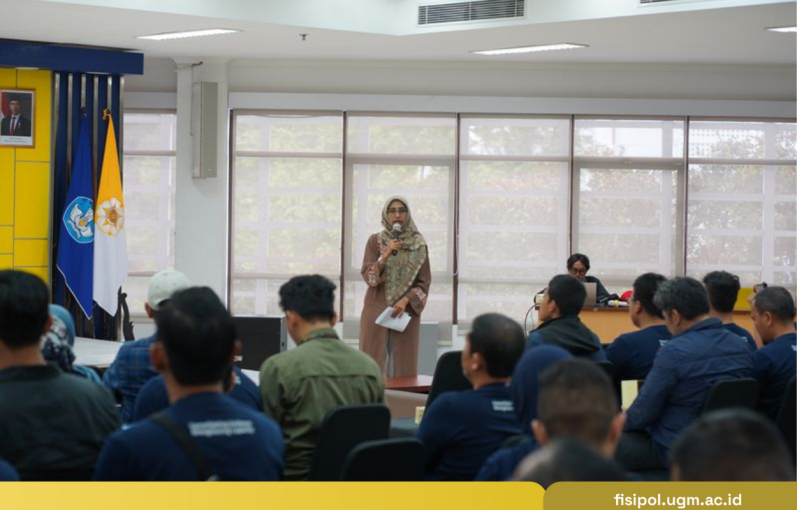
Yogyakarta, August 28, 2025—The Faculty of Social and Political Sciences (FISIPOL) Universitas Gadjah Mada (UGM) welcomed a group of participants from the Training on the Preparation of Strategic Plans (Renstra) for Regional Government Agencies of Bogor Regency. The program, facilitated by the Center for Capacity Development and Cooperation (PPKK) FISIPOL UGM, was designed as a campus tour and took place on Thursday morning (28/8).
The visit began with explorations to several faculties at UGM, including the Faculty of Forestry and the Faculty of Law, before concluding at the Faculty of Social and Political Sciences (FISIPOL). At FISIPOL UGM, the participants were welcomed by the Executive Secretary of PPKK, Dr. Pradhikna Yunik, followed by a presentation from Dr. Maharani Hapsari titled “Building Regional Competitiveness: Mapping Economic Potential and Innovation Based on Science and Technology.”
The material was delivered not only in theoretical terms but also supported with real-life examples and practical steps for easier understanding. This approach allowed participants to link academic concepts with the concrete needs of their respective regions.
In her presentation, Dr. Maharani emphasized that regional competitiveness is key to addressing the challenges of sustainable development. She underlined that local governments should not only prepare visionary plans but also base them on the actual potential of their regions. This ensures that policies developed are both relevant and responsive to community needs.
She further highlighted the importance of science and technology (IPTEK)-based innovation in designing development strategies. According to her, mapping regional economic potential combined with academic approaches can result in more applicable policies. “We must translate theory into practical steps that can be easily implemented by local government agencies,” she explained.
The session was highly interactive, marked by the enthusiasm of participants who actively shared their experiences and posed questions related to development challenges in Bogor Regency. This atmosphere encouraged a productive exchange of ideas between academic perspectives and field practices.
Through this direct learning experience on campus, Renstra training participants are expected to formulate development strategies that are not only visionary but also grounded in the region’s actual potential. With a foundation of innovation, knowledge, and technology, these strategies are anticipated to strengthen Bogor Regency’s competitiveness while supporting the agenda of sustainable development.
